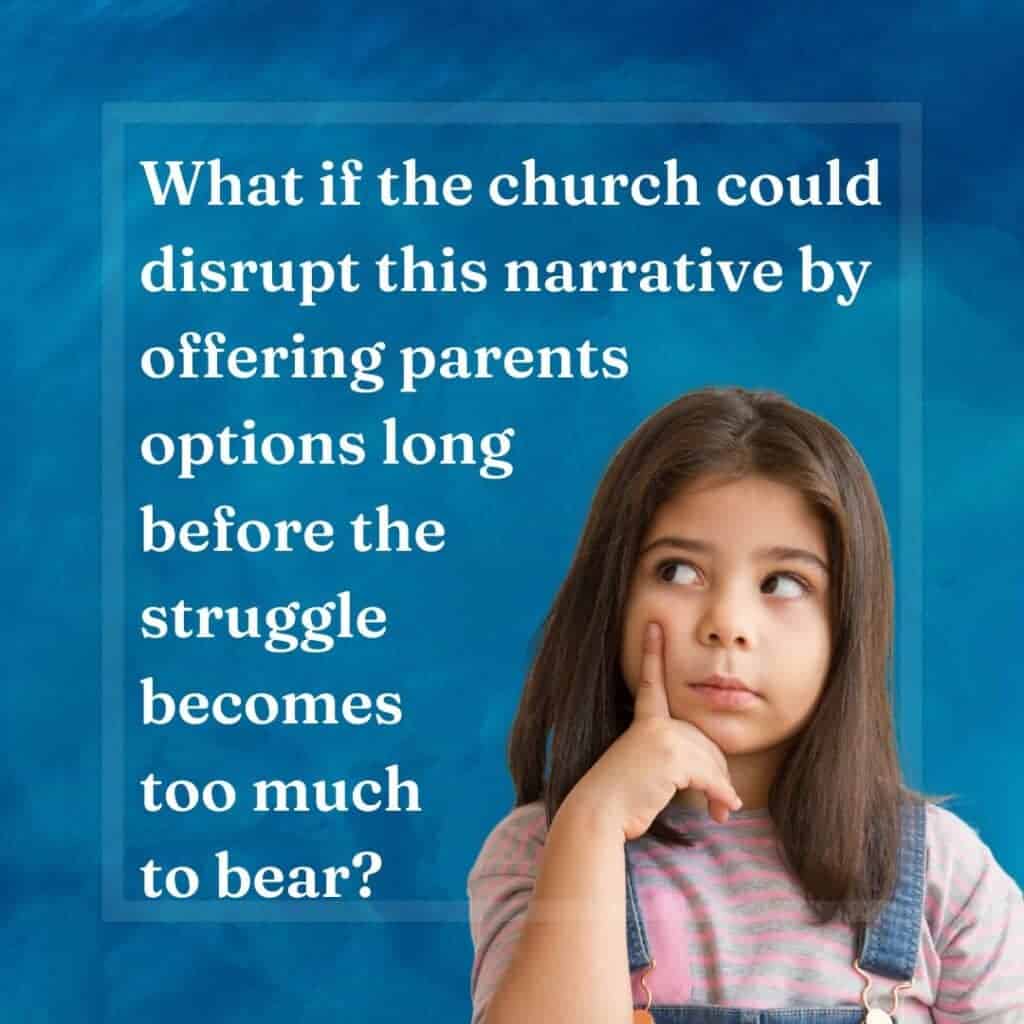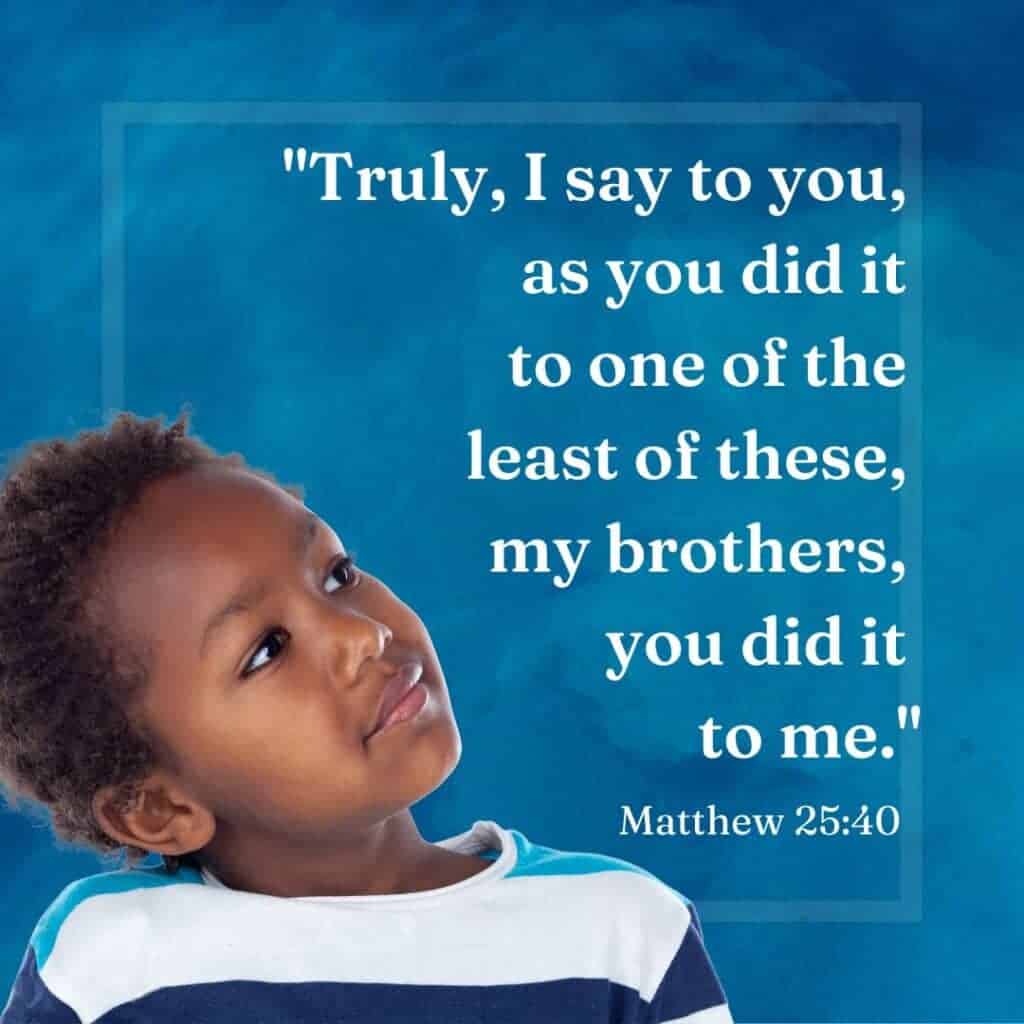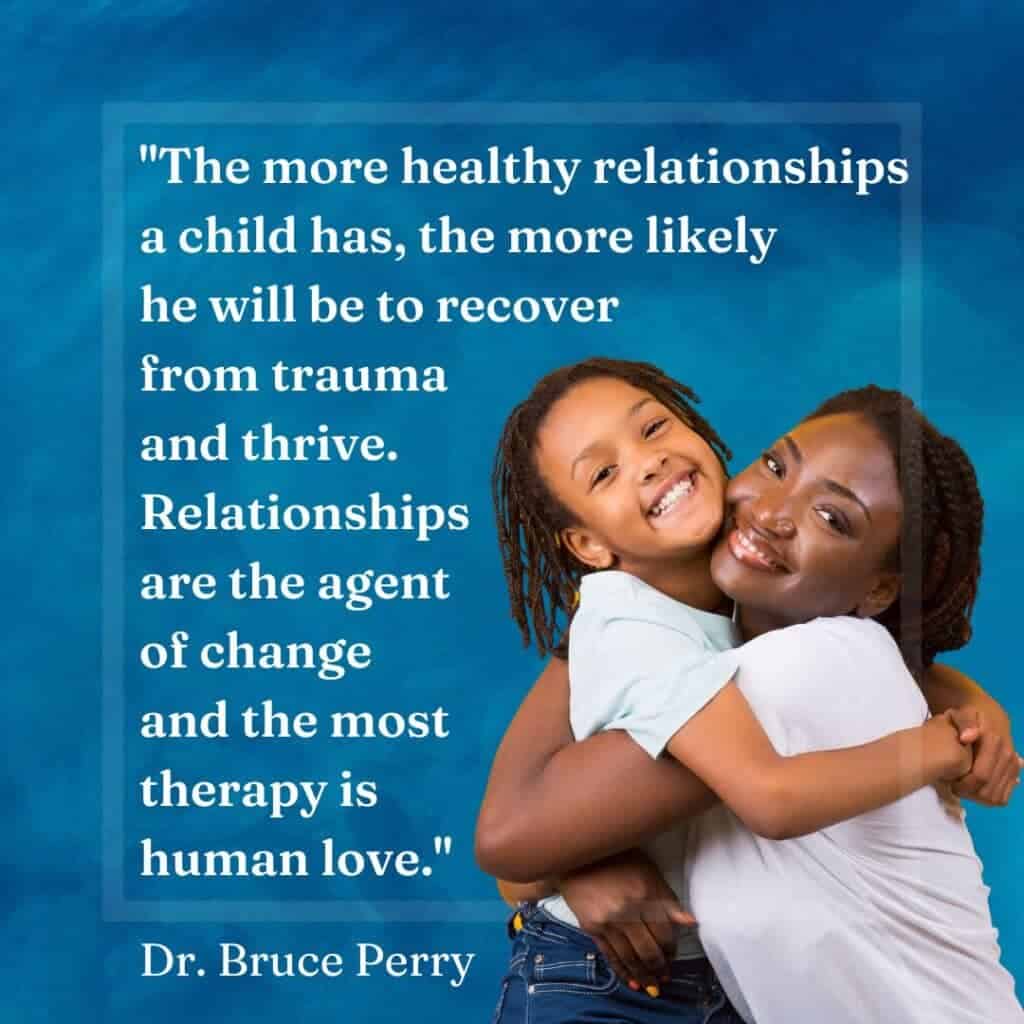There are many ways the church can prevent child neglect in struggling families. Neglect is one of the most common forms of child abuse and is the ongoing failure to meet a child’s basic needs. A child might be left hungry or dirty or without proper clothing, shelter, supervision or health care. Without interventions, these scenarios leave children vulnerable and at risk for harm.
Unfortunately, families who find themselves in dire situations only know of one narrative and one option. The narrative might sound something like this:
“I’m a struggling parent (with mental health, addiction, medical crisis, etc.), and I know I need help. I have friends and family, but I have no one who I would trust to keep my child for me while I get the help I need. And if I tell anyone I’m struggling, they will report me to Child Protection Services, who will come take my child away from me. I can’t bear the thought of that. So instead, I struggle, and I hide. I’m alone and afraid.”
One day, the walls come crashing down, and by then, it’s too late. The parent’s worst fear has come true. Child Protective Services are mandated to intervene in extreme child neglect and abuse cases once children are harmed and traumatized.

We need to look at three essential questions in the case of struggling families and neglected children.
1. Why would followers of Jesus wait until a child is already harmed before we offer to help?
2. What if the church could disrupt this narrative by offering parents options upstream long before the struggle becomes too much to bear?
3. What if we could help struggling parents keep the right to voluntarily ask for help and make decisions for their children before child neglect becomes an issue?
The Bible tells us, “Learn to do good” (Isaiah 1:17). By reaching a hand out to those who are struggling and by helping prevent child neglect, we are doing good works for the kingdom of God.
Jesus says in Matthew 25:31-40:
“When the Son of Man comes in his glory, and all the angels with him, then he will sit on his glorious throne. Before him will be gathered all the nations, and he will separate people one from another as a shepherd separates the sheep from the goats. And he will place the sheep on his right, but the goats on the left. Then the King will say to those on his right, ‘Come, you who are blessed by my Father, inherit the kingdom prepared for you from the foundation of the world. For I was hungry and you gave me food, I was thirsty and you gave me drink, I was a stranger and you welcomed me, I was naked and you clothed me, I was sick and you visited me, I was in prison and you came to me.’ Then the righteous will answer him, saying, ‘Lord, when did we see you hungry and feed you, or thirsty and give you drink? And when did we see you a stranger and welcome you, or naked and clothe you? And when did we see you sick or in prison and visit you?’ And the King will answer them, ‘Truly, I say to you, as you did it to one of the least of these my brothers, you did it to me.’"

Jesus tells us that we must come alongside those struggling and help them. Let’s honor the God-given role of the parent-child relationship and empower parents to be the mothers and fathers they were created to be. We can build an army willing to walk alongside these courageous parents, not to fix them but to befriend them. Everyone can do something. Let’s say with our actions, “We see you, and you are not alone anymore. We care about you and are committed to helping you be the parent God created you to be. The church — the relational network of the family of God — wants you to know that our family is your family.
Some churches in Minnesota and Iowa have decided it is time to support struggling families and prevent child neglect in their communities by empowering parents. The following 12 ideas are ways these churches successfully support struggling families in their communities. What ideas can you and your church adopt to support those in your community who need help? What other ideas can you come up with to be Jesus’ hands and feet?
Church communities can get trained on trauma competent care, child neglect, abuse, and the positive impact of relational support.
Expanding the church’s cultural lens and understanding poverty and other issues helps create empathy and understanding when helping struggling families.
Build teams within your church, such as prayer teams, volunteer-vetted advocates, volunteer-vetted host families, meal teams, and transportation teams. Make them available to families in need through the church network.
Gather resources like diapers and clothing, and make them available to families in need.
Professional staff can take calls for help and connect the parent in need to a local church. These churches call this “ministry mobilization with professional oversight.”
Offer to be an advocate or friend. Check-in with an exhausted parent by phone or in person regularly, and be sure child neglect isn’t happening.
Offer to care for a child with autism for one day a month so a struggling mom can have a mental health break.
Offer to bring a monthly meal to share with a family.
Prepare gift baskets for all holidays (Christmas, Easter, Thanksgiving, Valentine’s Day, Mothers’ Day, etc.) and personally deliver them with an invitation to church.
Offer to drive to the local prison where a birth mother is finishing her sentence, pick up her breast milk, and deliver it to the approved volunteer host family caring for her baby until she is released.
Offer a caring advocate or friend to walk alongside a pregnant young woman who feels she can’t parent alone, who will support and encourage her beyond the day her child is born.
A local church remodeled an old parsonage on their property and offered to open it to a single mom, raised in foster care herself, as transitional housing once she completed her substance abuse treatment. A team of four committed volunteers regularly meets to pray with her, supporting her as she makes decisions about work and child care and prepares for future housing. The church is right next door for fellowship and free meals at the Wednesday night service. They are building community.
The struggling families in these communities are experiencing the kind of unconditional love that says, “I love you, and I will help.” In astonishment, they wonder, “Why would you do this for me?”

Nurses, social workers, mental health professionals, public health nurses, and addiction treatment centers are referring parents to this network of family preservation care. Everything is voluntary: parents voluntarily ask for help, and the church teams volunteer to help.
These referrals tell us that the church has one thing professionals can’t offer and that families desperately need: Relationships. The church can prevent child neglect in a way others cannot.
Dr. Bruce Perry says, “The more healthy relationships a child has, the more likely he will be to recover from trauma and thrive. Relationships are the agent of change, and the most powerful therapy is human love.”
God has equipped and called His Church — which includes you and me — for such a time as this. Let’s build an army upstream to help prevent the need for government foster care by coming alongside vulnerable children and families in a Christ-centered ministry.
Let’s get excited about what can happen when we work together for the sake of the child, the family, and the community in Jesus’ name.
The post 12 Ways The Church Can Prevent Child Neglect appeared first on Focus on the Family.
Continue reading...
Struggling Families and Neglect
Unfortunately, families who find themselves in dire situations only know of one narrative and one option. The narrative might sound something like this:
“I’m a struggling parent (with mental health, addiction, medical crisis, etc.), and I know I need help. I have friends and family, but I have no one who I would trust to keep my child for me while I get the help I need. And if I tell anyone I’m struggling, they will report me to Child Protection Services, who will come take my child away from me. I can’t bear the thought of that. So instead, I struggle, and I hide. I’m alone and afraid.”
One day, the walls come crashing down, and by then, it’s too late. The parent’s worst fear has come true. Child Protective Services are mandated to intervene in extreme child neglect and abuse cases once children are harmed and traumatized.
The Church Can Intervene

We need to look at three essential questions in the case of struggling families and neglected children.
1. Why would followers of Jesus wait until a child is already harmed before we offer to help?
2. What if the church could disrupt this narrative by offering parents options upstream long before the struggle becomes too much to bear?
3. What if we could help struggling parents keep the right to voluntarily ask for help and make decisions for their children before child neglect becomes an issue?
The Bible tells us, “Learn to do good” (Isaiah 1:17). By reaching a hand out to those who are struggling and by helping prevent child neglect, we are doing good works for the kingdom of God.
A High Calling for the Church to Prevent Child Neglect
Jesus says in Matthew 25:31-40:
“When the Son of Man comes in his glory, and all the angels with him, then he will sit on his glorious throne. Before him will be gathered all the nations, and he will separate people one from another as a shepherd separates the sheep from the goats. And he will place the sheep on his right, but the goats on the left. Then the King will say to those on his right, ‘Come, you who are blessed by my Father, inherit the kingdom prepared for you from the foundation of the world. For I was hungry and you gave me food, I was thirsty and you gave me drink, I was a stranger and you welcomed me, I was naked and you clothed me, I was sick and you visited me, I was in prison and you came to me.’ Then the righteous will answer him, saying, ‘Lord, when did we see you hungry and feed you, or thirsty and give you drink? And when did we see you a stranger and welcome you, or naked and clothe you? And when did we see you sick or in prison and visit you?’ And the King will answer them, ‘Truly, I say to you, as you did it to one of the least of these my brothers, you did it to me.’"

Empowering Parents in Jesus’ Name
Jesus tells us that we must come alongside those struggling and help them. Let’s honor the God-given role of the parent-child relationship and empower parents to be the mothers and fathers they were created to be. We can build an army willing to walk alongside these courageous parents, not to fix them but to befriend them. Everyone can do something. Let’s say with our actions, “We see you, and you are not alone anymore. We care about you and are committed to helping you be the parent God created you to be. The church — the relational network of the family of God — wants you to know that our family is your family.
12 Ways The Church Can Prevent Child Neglect
Some churches in Minnesota and Iowa have decided it is time to support struggling families and prevent child neglect in their communities by empowering parents. The following 12 ideas are ways these churches successfully support struggling families in their communities. What ideas can you and your church adopt to support those in your community who need help? What other ideas can you come up with to be Jesus’ hands and feet?
1. Get Training
Church communities can get trained on trauma competent care, child neglect, abuse, and the positive impact of relational support.
2. Expand Your Cultural Lens
Expanding the church’s cultural lens and understanding poverty and other issues helps create empathy and understanding when helping struggling families.
3. Build Teams
Build teams within your church, such as prayer teams, volunteer-vetted advocates, volunteer-vetted host families, meal teams, and transportation teams. Make them available to families in need through the church network.
4. Gather Resources
Gather resources like diapers and clothing, and make them available to families in need.
5. Vet Calls
Professional staff can take calls for help and connect the parent in need to a local church. These churches call this “ministry mobilization with professional oversight.”
6. Check In
Offer to be an advocate or friend. Check-in with an exhausted parent by phone or in person regularly, and be sure child neglect isn’t happening.
7. Offer Care
Offer to care for a child with autism for one day a month so a struggling mom can have a mental health break.
8. Share a Meal
Offer to bring a monthly meal to share with a family.
9. Deliveries for Good
Prepare gift baskets for all holidays (Christmas, Easter, Thanksgiving, Valentine’s Day, Mothers’ Day, etc.) and personally deliver them with an invitation to church.
10. Drive & Deliver
Offer to drive to the local prison where a birth mother is finishing her sentence, pick up her breast milk, and deliver it to the approved volunteer host family caring for her baby until she is released.
11. Walk Alongside a Pregnant Woman
Offer a caring advocate or friend to walk alongside a pregnant young woman who feels she can’t parent alone, who will support and encourage her beyond the day her child is born.
12. Plan a Remodel
A local church remodeled an old parsonage on their property and offered to open it to a single mom, raised in foster care herself, as transitional housing once she completed her substance abuse treatment. A team of four committed volunteers regularly meets to pray with her, supporting her as she makes decisions about work and child care and prepares for future housing. The church is right next door for fellowship and free meals at the Wednesday night service. They are building community.
Creating Community While Preventing Child Neglect
The struggling families in these communities are experiencing the kind of unconditional love that says, “I love you, and I will help.” In astonishment, they wonder, “Why would you do this for me?”

Nurses, social workers, mental health professionals, public health nurses, and addiction treatment centers are referring parents to this network of family preservation care. Everything is voluntary: parents voluntarily ask for help, and the church teams volunteer to help.
These referrals tell us that the church has one thing professionals can’t offer and that families desperately need: Relationships. The church can prevent child neglect in a way others cannot.
Dr. Bruce Perry says, “The more healthy relationships a child has, the more likely he will be to recover from trauma and thrive. Relationships are the agent of change, and the most powerful therapy is human love.”
God has equipped and called His Church — which includes you and me — for such a time as this. Let’s build an army upstream to help prevent the need for government foster care by coming alongside vulnerable children and families in a Christ-centered ministry.
Let’s get excited about what can happen when we work together for the sake of the child, the family, and the community in Jesus’ name.
The post 12 Ways The Church Can Prevent Child Neglect appeared first on Focus on the Family.
Continue reading...





